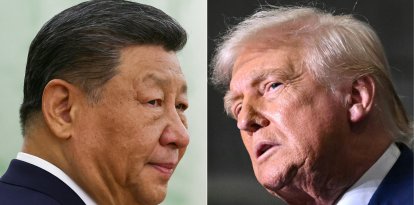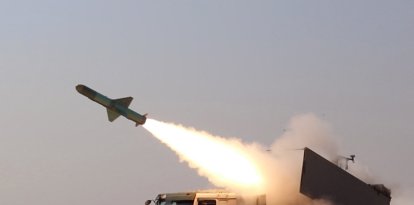Biden administration opposes condemning Iran's serious nuclear violations
A European diplomat said the U.S. government does not agree with the United Kingdom, France and Germany when it comes to issuing a resolution against Tehran at the U.N.'s International Atomic Energy Agency.

(ATTA KENARE / AFP)
The Biden administration opposes pushing a resolution against Iran at the U.N. International Atomic Energy Agency (IAEA) for its serious nuclear violations, unlike the intention of its European allies France, the United Kingdom and Germany, a European diplomat told Reuters.
The last resolution against Iran was presented by the IAEA 18 months ago. On that occasion, the agency ordered Tehran to cooperate in its investigation into uranium particles found at three undeclared sites, something that the Islamic regime has not been able to explain.
While the sites in question have been narrowed down to two, the agency's problems with Iran have been increasing as that country's government has barred many of the IAEA's top uranium enrichment experts from the inspection team.
According to the European diplomat, Iran's nuclear violations are “unprecedented” and there has been no slowdown in its atomic program. He also said that Tehran is not willing to cooperate with the IAEA.
According to the IAEA, for the last three years, Iran has been enriching uranium up to 60%, close to the 90% that is weapons-grade. Although Tehran claims that its objectives are peaceful, Western countries have their concerns about trusting the Iranian regime.
However, the Biden administration has not wanted to push another resolution against Iran at recent IAEA board meetings. Some official believe that this is due to the proximity of the upcoming presidential elections in the United States. However, U.S. officials claim that Washington is actually trying to avoid giving the Iranians a pretext to react to the resolution by escalating their nuclear activities, as it has done in the past.
According to two diplomats involved in the matter, Tehran recently told the IAEA that it is not willing to reach any agreement with the agency until it chooses a successor to Ebrahim Raisi, the Iranian president who recently died in a helicopter crash.
A senior European diplomat said a resolution has been prepared and that its essential to move forward with it. However, he claimed that Americans are against it, so they are working to convince them.
The IAEA's next quarterly reports on Iran are due early next week. Draft resolutions tend to mention the findings of these reports.

























